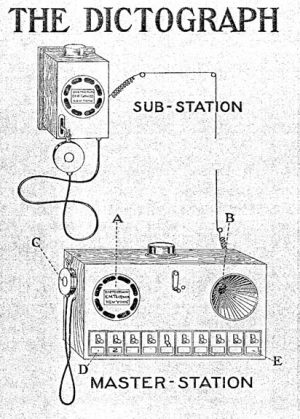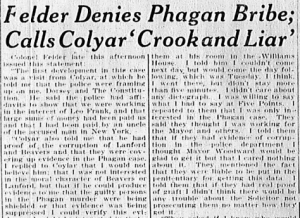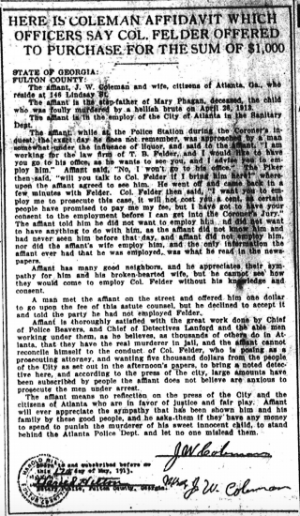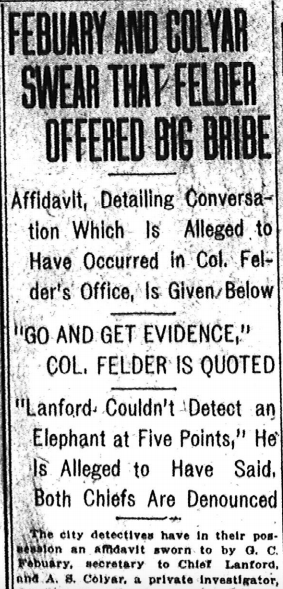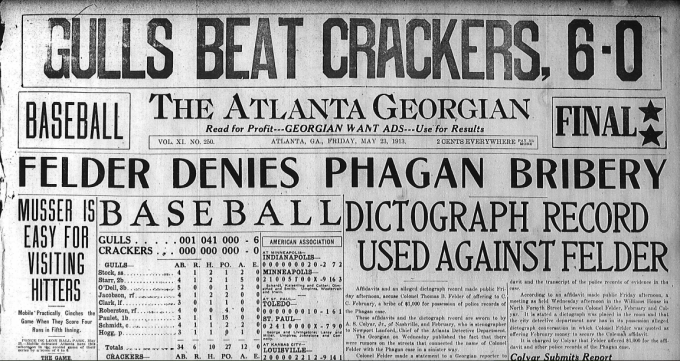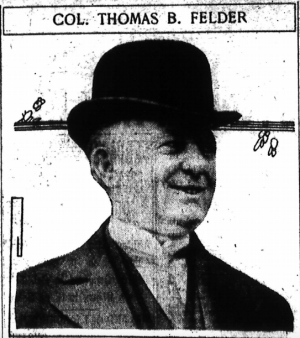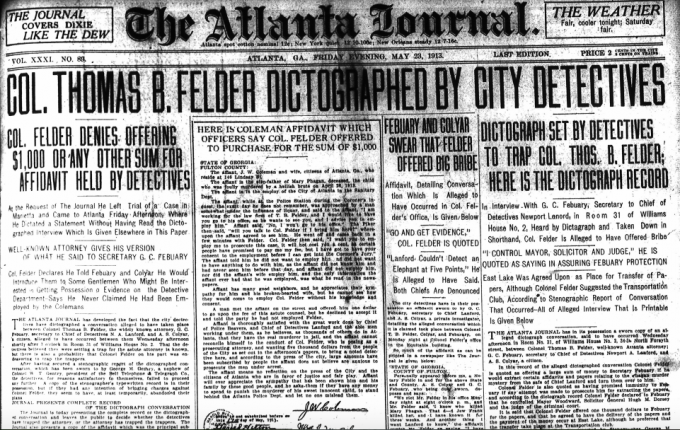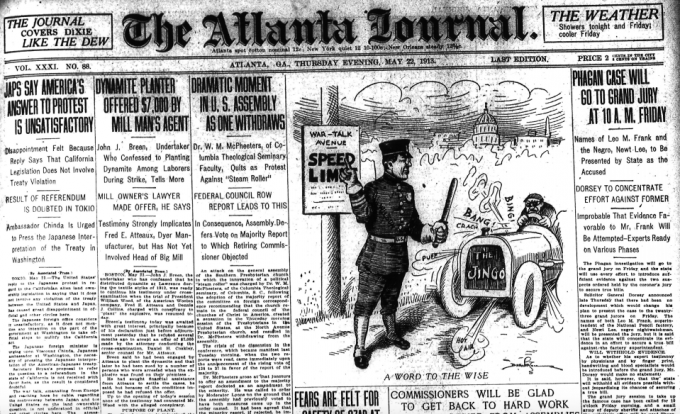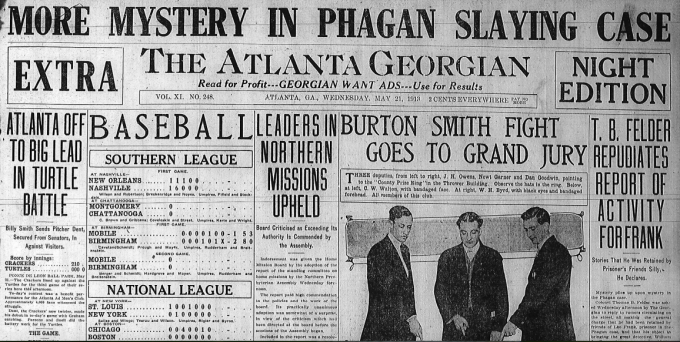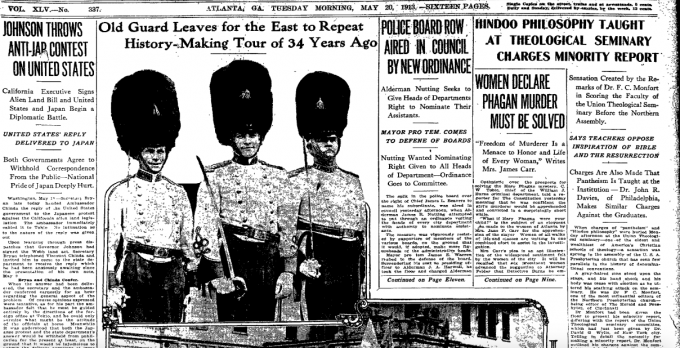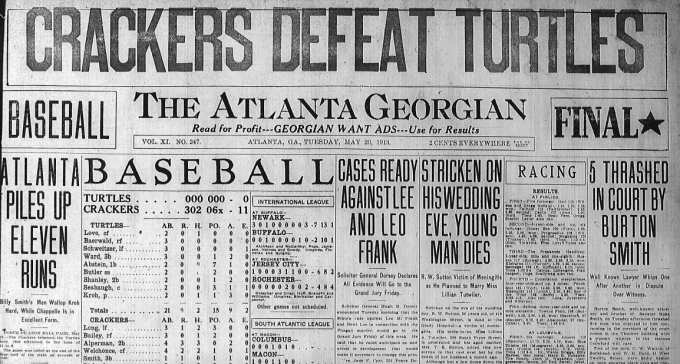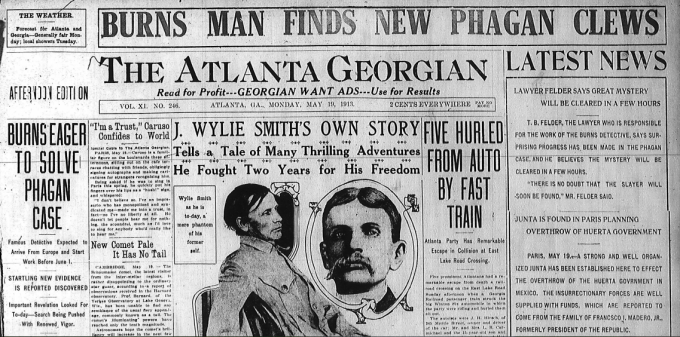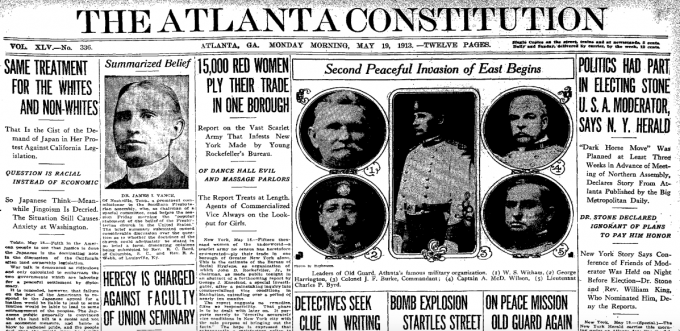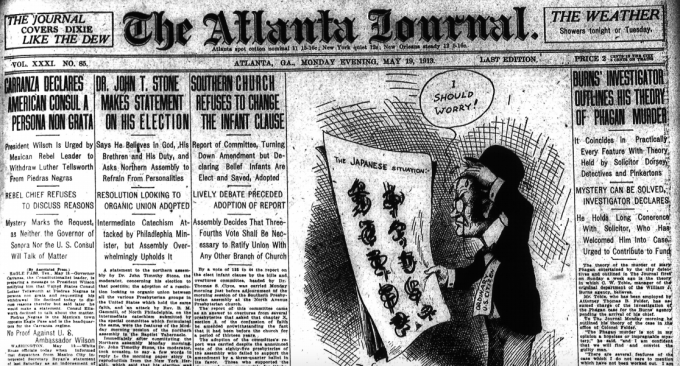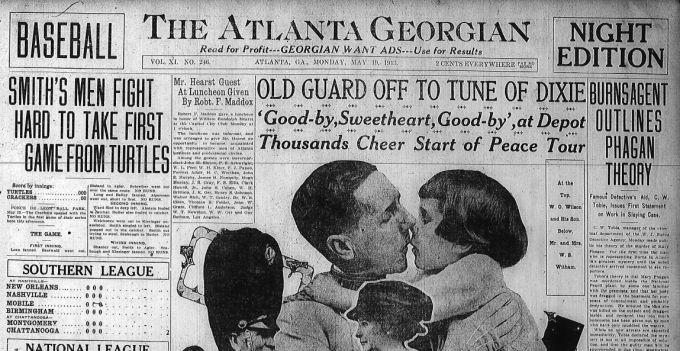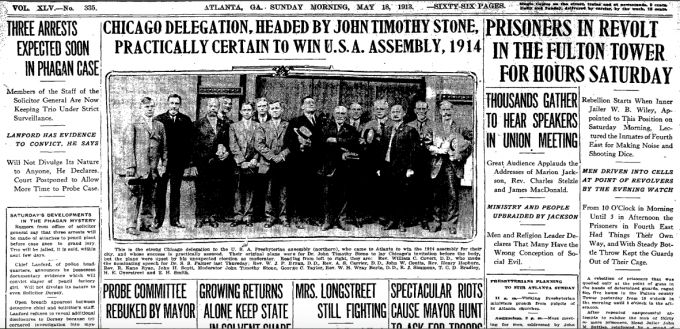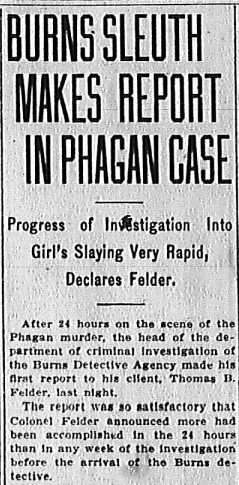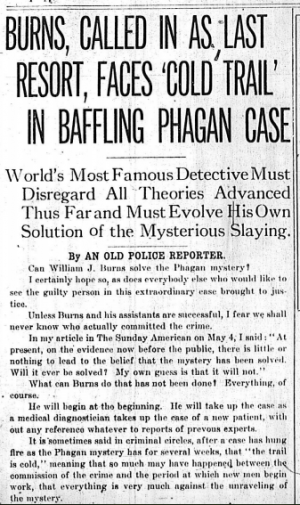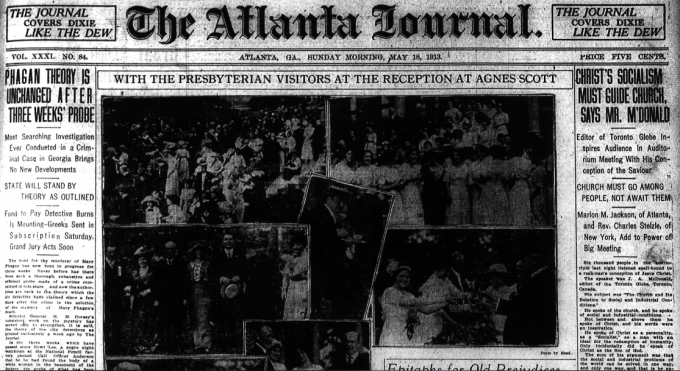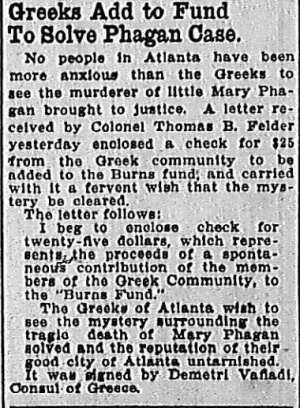Another in our series of new transcriptions of contemporary articles on the Leo Frank case.
Atlanta Journal
Friday, May 23rd, 1913
Instrument Was Put In by Lawrence O. Surles of the Southern Bell Telephone Company—George M. Gentry, Took Down the Conversation in Shorthand
The dictograph, through which was recorded the conversation held by agents of the city detectives with Attorney Thomas B. Felder, was most ingeniously arranged and installed by Lawrence O. Surles, chief clerk of the traffic department of the Southern Bell Telephone and Telegraph company, who is the Atlanta representative of the Dictograph Manufacturing company.
Just behind the lower portion of a dresser front board in room No. 31 of Williams House No.2 was screwed two tiny dials, the transmitters or sounders of the cunning little device. Running from these dials were two dark red wires, which were so hidden in the crevices of the dresser as to be invisible even to a suspicious person who might have made a minute investigation.
The dresser was placed directly in front of a door which connected with room No. 32, and the two wires were run through the keyhole of this door. To further avoid the possibility of discovery of the instrument or its wires the dresser was then screwed to the door frame so that it could not be pulled or moved.
Inside room No. 32 the wires ran through two small dry batteries, of the type used for electric door-bells and were there attached to the receiver, which hung upon a hood-piece exactly similar to those employed by operators of private branch telephone exchanges. Continue Reading →

